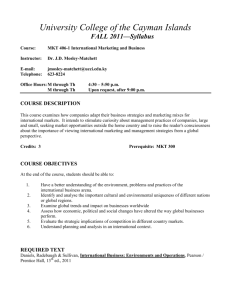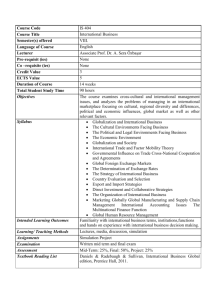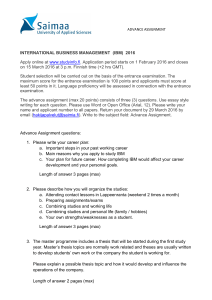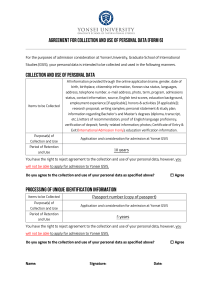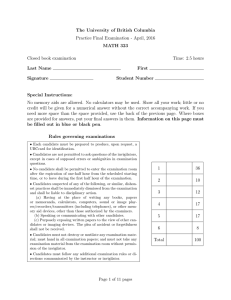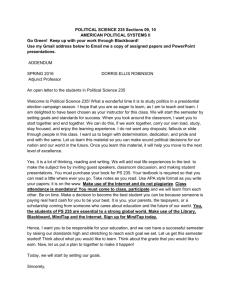국제경영 강의안 2003 가을
advertisement
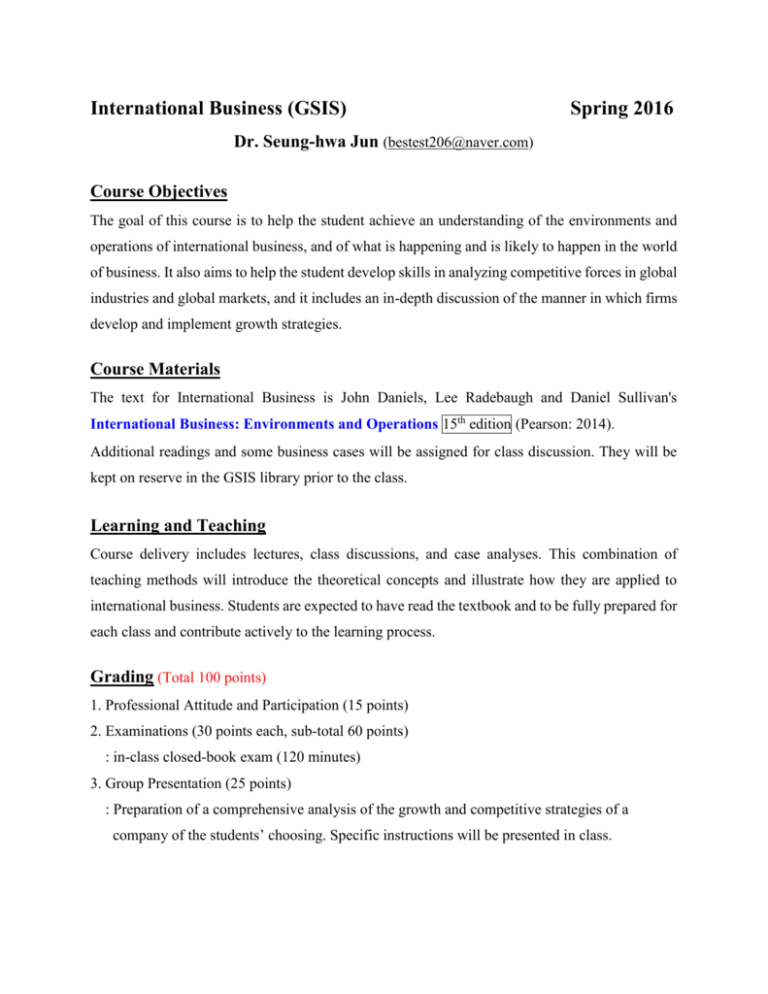
International Business (GSIS) Spring 2016 Dr. Seung-hwa Jun (bestest206@naver.com) Course Objectives The goal of this course is to help the student achieve an understanding of the environments and operations of international business, and of what is happening and is likely to happen in the world of business. It also aims to help the student develop skills in analyzing competitive forces in global industries and global markets, and it includes an in-depth discussion of the manner in which firms develop and implement growth strategies. Course Materials The text for International Business is John Daniels, Lee Radebaugh and Daniel Sullivan's International Business: Environments and Operations 15th edition (Pearson: 2014). Additional readings and some business cases will be assigned for class discussion. They will be kept on reserve in the GSIS library prior to the class. Learning and Teaching Course delivery includes lectures, class discussions, and case analyses. This combination of teaching methods will introduce the theoretical concepts and illustrate how they are applied to international business. Students are expected to have read the textbook and to be fully prepared for each class and contribute actively to the learning process. Grading (Total 100 points) 1. Professional Attitude and Participation (15 points) 2. Examinations (30 points each, sub-total 60 points) : in-class closed-book exam (120 minutes) 3. Group Presentation (25 points) : Preparation of a comprehensive analysis of the growth and competitive strategies of a company of the students’ choosing. Specific instructions will be presented in class. Class Schedule (subject to minor changes) Class 1. Introduction to International Business: An Overview (Chapter 1) Class 2. The Socio-Cultural Environments Facing Business (Chapter 2) Class 3. The Political and Economic Environments Facing Business (Chapter 3, 4) Class 4. Connecting Countries through Trade and Factor Movements (Chapter 5, 6) Class 5. Strategies for International Business (Chapter 12) Class 6. Guide to Case Analysis Class 7. Mid-term Examination Class 8. Country Evaluation and Selection (Chapter 13) Class 9. Export and Import Strategies (Chapter 14) Class 10. Collaborative Strategies (Chapter 15) Class 11. International Marketing (Chapter 17) Class 12. Global Production and Supply Chains (Chapter 18) Class 13. Final Examination Class 14. Student Presentations #1 Class 15. Student Presentations #2 (2016. 02. 06. version)
